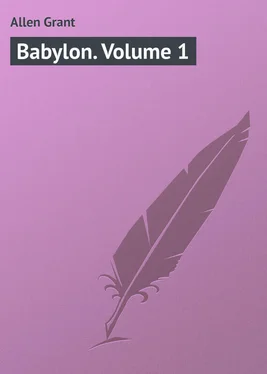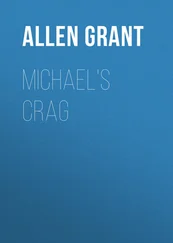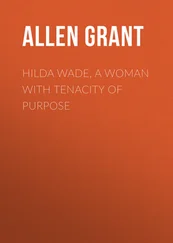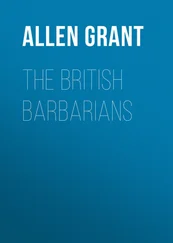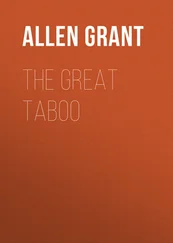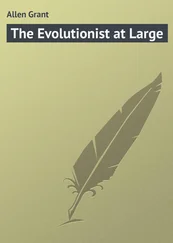Grant Allen - Babylon. Volume 1
Здесь есть возможность читать онлайн «Grant Allen - Babylon. Volume 1» — ознакомительный отрывок электронной книги совершенно бесплатно, а после прочтения отрывка купить полную версию. В некоторых случаях можно слушать аудио, скачать через торрент в формате fb2 и присутствует краткое содержание. ISBN: , Жанр: foreign_prose, на английском языке. Описание произведения, (предисловие) а так же отзывы посетителей доступны на портале библиотеки ЛибКат.
- Название:Babylon. Volume 1
- Автор:
- Жанр:
- Год:неизвестен
- ISBN:http://www.gutenberg.org/ebooks/47431
- Рейтинг книги:5 / 5. Голосов: 1
-
Избранное:Добавить в избранное
- Отзывы:
-
Ваша оценка:
- 100
- 1
- 2
- 3
- 4
- 5
Babylon. Volume 1: краткое содержание, описание и аннотация
Предлагаем к чтению аннотацию, описание, краткое содержание или предисловие (зависит от того, что написал сам автор книги «Babylon. Volume 1»). Если вы не нашли необходимую информацию о книге — напишите в комментариях, мы постараемся отыскать её.
Babylon. Volume 1 — читать онлайн ознакомительный отрывок
Ниже представлен текст книги, разбитый по страницам. Система сохранения места последней прочитанной страницы, позволяет с удобством читать онлайн бесплатно книгу «Babylon. Volume 1», без необходимости каждый раз заново искать на чём Вы остановились. Поставьте закладку, и сможете в любой момент перейти на страницу, на которой закончили чтение.
Интервал:
Закладка:
The deacon turned the leaves over slowly for some minutes more, with many angry ejaculations, and then deliberately took them between his finger and thumb, and tore the book in two across the middle. Next, he doubled the pages over again, and tore them a second time across, and so on until the whole lot was reduced to a mass of little fluttering crumpled fragments. These he tossed contemptuously among the boulders, and with a parting cuff to Hiram proceeded on his way, to ruminate over the singular mystery of reprobation, even in the children of regenerate parents. ‘You jest mind you go in right thar an’ weed the rest of that peppermint, sonny,’ he said as he strode away. ‘An’ be pretty quick about it, too, or else you’ll be more scar’t when you come home to-night than ever you was scar’t in all your life afore, you take my word for it.’
As soon as the deacon was gone, poor Hiram sat down again on the heap of boulders and cried as though his little heart would fairly break. In spite of his father’s vigorous admonition, he couldn’t turn to at once and weed the peppermint. ‘’Taint the lickin’ I mind,’ he said to himself ruefully, as he gathered up the scattered fragments in his hand, ‘’tain’t the lickin’, it’s the picturs. Them thar picturs was pretty near the on’y thing I liked best of anything livin’. Wal, it wouldn’t hev mattered much ef he’d on’y tore up the ones I’d drawed: but when he tore up all my paper, so as I can’t draw any more, that does make a feller feel reel bad. I never was so mad with him in my life afore. I reckon fathers is the onaccountablest and most mirac’lous creeturs in all creation. He might hev tore the picturs ef he liked, but what for. did he want to go tearin’ up all my paper?’
As he sat there on the boulders, still, with that gross injustice rankling impotently in his boyish soul, he felt another shadow approaching once more, and looked up expecting to see his father returning. But it wasn’t the gaunt long shadow of the deacon that came across the pile: it was a plump, round, thickset English shadow, and it was closely followed by the body of its owner, his father’s hired help, late come from Dorsetshire. Sam Churchill leant down in his bluff, kindly way, when he saw the little chap crying, and asked him quickly if he was ill.
‘Sick?’ Hiram answered, through his sobs, unconsciously translating the word into his own dialect. ‘Sick? No, I aint sick, Mr. Sam; but I’m orful mad with father. He kem right here just now and tore up my drawin’ book – an’ that drawin’ book was most everything to me, it was – and he’s tore it up, a ravin’ an’ tearin’ like all possest, this very minnit.’
Sam looked at the fragments sympathetically. ‘I tell’ee, Hiram,’ he said gently, ‘I’ve got a brother o’ my own awver yonder in Darsetshire – about your age, too – as is turble vond of drawin’. I was turble vond of it myself when I was a little chap at ‘Ootton. Thik ther eagle is drawed first-rate, ’e be, an’ so’s the squir’l. I’ve drawed squir’ls myself, many’s the time, in the copse at ‘Ootton, I mind: an’ I’ve gone mitching, too, in summer, birds’-nestin’ and that, all over the vields for miles around us. Your faather’s a main good man, Hiram;‘e ’s a religious man, an’ a ‘onest man, and I do love to ‘ear ‘un argify most turble vine about religion, an’ ‘ell, an’ reprobation, an’ ‘Enery Clay, and such like: but’e’s a’ard man, tiler’s no denyin’ of it.‘E’s took’is religion ‘ot an’ ‘ot, ‘e ‘as; an’ I do think’e do use ‘ee bad sometimes, vor a little chap, an’ no mistake. Now, don’t ‘ee go an’ cry no longer, ther’s a good little vulla; don’t ‘ee cry, Hiram, vor I never could abare to zee a little chap or a woman a-cryin’. Zee ‘ere, Hiram,’ and the big hand dived deep into the recesses of a pair of very muddy corduroy trousers, ‘’ere’s a sixpence for’ee – what do ‘ee call it awver ‘ere, ten cents, bain’t it? ‘Ere, take it, take it young un; don’t ‘ee be aveard. Now, what’ll ‘ee buy wi’ it, eh? Lollipops, most like, I sim.’
‘Lollipops!’ the boy answered quickly, taking the dime with a grateful gesture. ‘No, Mr. Sam, not them: nor toffy, nor peanuts neither. I shall go right away to Wes’ Johnson’s store, next time father’s in the city, an’ buy a new book, so as I can make a crowd more drawin’s. That’s what I like better’n anything. It’s jest splendid.’
Sam looked at the little Yankee boy again with a certain faint moisture in his eyes; but he didn’t reflect to himself that human nature is much the same all the world over, in Dorsetshire or in Geauga County. In fact, it would never have occurred to Sam’s simple heart to doubt the truth of that fairly obvious principle. He only put his hand on Hiram’s ragged head, and said softly: ‘Well, Hiram, turn to now, an’ I’ll help ‘ee weed the peppermint.’
They weeded a row or two in silence, and then Sam asked suddenly: ‘What vor do un grow thik peppermint, Hiram?’
‘To make candy, Mr. Sam,’ Hiram answered.
‘Good job too,’ Sam went on musingly. ‘Seems to me they do want it turble bad in these ‘ere parts. Sight too much corn, an’ not near enough candy down to ‘Murrica; why can’t deacon let the little vulla draw a squir’l if ‘e’s got a mind to? That’s what I wants to know. What do those varmers all around ‘ere do? (Varmers they do call ‘em; no better nor labourers, I take it.) Why, they buy a bit ‘o land, an’ work, an’ slave thesselves an’ their missuses, all their lives long, what vor? To raise pork and corn on. What vor, again? To buy more land; to raise more corn an’ bacon; to buy more land again; to raise more corn an’ bacon; and so on, world without end, amen, for ever an’ ever. An’ in the tottal, what do ur all come to? Pork and flour, for ever an’ ever. Why, even awver yonder in old England, we’d got something better nor that, and better worth livin’ vor.’ And Sam’s mind wandered back gently to Wootton Mandeville, and the old tower which he didn’t know to be of Norman architecture, but which he loved just as well as if he did for all that: and then he borrowed Hiram’s pencil, and pulled a piece of folded paper from his pocket (it had inclosed an ounce of best Virginia), and drew upon it for Hiram’s wondering eyes a rough sketch of an English village church, with big round arches and dog-tooth ornament, embowered in shady elm-trees, and backed up by a rolling chalk down in the further distance. Hiram looked at the sketch admiringly and eagerly.
‘I wish I could draw such a thing as that, he said with delight. ‘But I can’t, Mr. Sam; I can only draw birds and musk-rats and things – not churches. That’s a reel pretty church, too: reckon I never see such a one as that thar anywhere. Might that be whar you was raised, now?’
Sam nodded assent.
‘Wal, that does beat everything. I should like to go an’ see something like that, sometime. Ef I git a book, will you learn me to draw a church same as you do, Mr. Sam?’
‘Bless yer ‘eart, yes,’ Sam answered quickly, and turned with swimming eyes to weed the rest of the peppermint. From that day forth, Sam Churchill and Hiram Winthrop were sworn friends through all their troubles.
CHAPTER II. RURAL ENGLAND
It was a beautiful July morning, and Colin Churchill and Minna Wroe were playing together in the fritillary fields at Wootton Mandeville. At twelve years old, the intercourse of lad and maiden is still ingenuous; and Colin was just twelve, though little Minna might still have been some two years his junior. A tall, slim, fair-haired boy was Colin Churchill, with deep-blue eyes more poetical in their depth and intensity than one might have expected from a little Dorsetshire peasant child. Minna, on the other hand, was shorter and darker; a gipsy-looking girl, black-haired and tawny-skinned; and with two little beady-black eyes that glistened and ran over every moment with contagious merriment. Two prettier children you wouldn’t have found anywhere that day in the whole county of Dorset than Minna Wroe and Colin Churchill.
Читать дальшеИнтервал:
Закладка:
Похожие книги на «Babylon. Volume 1»
Представляем Вашему вниманию похожие книги на «Babylon. Volume 1» списком для выбора. Мы отобрали схожую по названию и смыслу литературу в надежде предоставить читателям больше вариантов отыскать новые, интересные, ещё непрочитанные произведения.
Обсуждение, отзывы о книге «Babylon. Volume 1» и просто собственные мнения читателей. Оставьте ваши комментарии, напишите, что Вы думаете о произведении, его смысле или главных героях. Укажите что конкретно понравилось, а что нет, и почему Вы так считаете.
